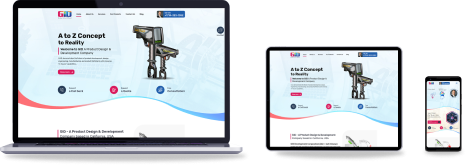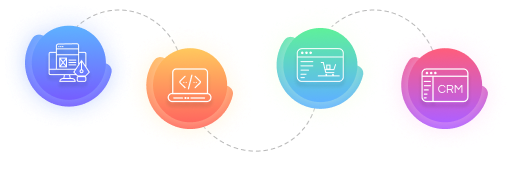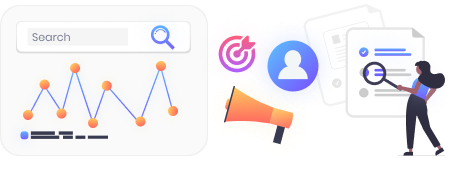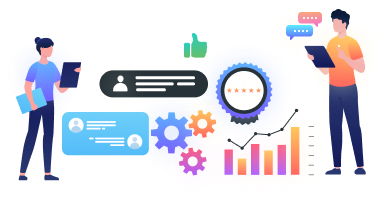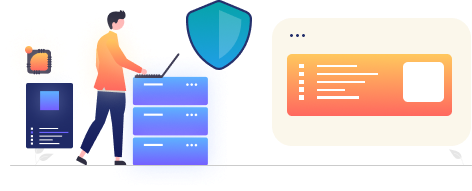
Understanding the Features and Benefits of Google Analytics 4
Google Analytics 4, also known as GA4, is the latest version of the Google Analytics platform. It is designed to provide website and app owners with valuable insights into user behavior, interactions, and trends. GA4 offers advanced analytics capabilities and focuses on tracking and analyzing data from multiple platforms, including websites, mobile apps, and offline sources.
Benefits of Google Analytics 4: One of the significant changes in GA4 compared to its predecessor, Universal Google Analytics, is the shift in data model. GA4 utilizes an event-based data model, where user interactions are recorded as events and organized into distinct categories and parameters. Concept infoway allows for more flexible and detailed tracking of user behavior across different touch points.
Differences Between Universal Analytics vs. Google Analytics 4
Universal Analytics and Google Analytics 4 (GA4) are two different versions of Google’s web analytics platform. Here are the key differences between the two:
- Data Collection Model: Universal Analytics: In Universal Analytics, data is collected based on sessions and hits. A session represents a user’s visit to a website, and hits track specific interactions within that session, such as page views and events. Google Analytics 4: GA4 uses an event-based data model. It focuses on tracking individual events and user interactions rather than sessions. This allows for a more granular and flexible approach to data collection.
- Measurement and Reporting: Universal Analytics: In Universal Analytics, metrics and dimensions are predefined and organized into reports. It provides a standardized way of measuring and reporting website data. Google Analytics 4: GA4 offers more customizable measurement and reporting. It allows you to define events and parameters that are relevant to your specific business goals. This flexibility enables you to gather insights tailored to your unique tracking needs.
- Measurement and Reporting: Universal Analytics: Universal Analytics primarily tracks sessions and cookies to identify unique users. It relies on third-party cookies, which are becoming less reliable due to privacy concerns and browser limitations. Google Analytics 4: GA4 emphasizes a user-centric approach by utilizing a persistent User ID. It can track users across multiple devices and platforms, providing a more accurate view of user behavior even without relying heavily on cookies.
- Machine Learning Capabilities: Universal Analytics: Universal Analytics has limited built-in machine learning capabilities. Advanced analysis and prediction models require additional integrations or custom implementations. Google Analytics 4: GA4 incorporates more advanced machine learning techniques by default. It offers features like automated insights, predictive analytics, and audience modeling. These capabilities enable users to gain deeper insights into their data without extensive manual analysis.
- Data Control and Privacy: Universal Analytics: Universal Analytics provides less control over data collection and privacy settings. It relies on the website owner to configure settings and comply with relevant data privacy regulations. Google Analytics 4: GA4 offers enhanced data control and privacy features. It provides more options for managing data collection, including granular consent controls, data deletion, and data retention settings. This helps businesses comply with privacy regulations like GDPR and CCPA.
Read also: https://www.conceptinfoway.net/blog/how-to-modify-your-mx-records-for-google-apps-mail-gmail/
New Features & Benefits of Google Analytics 4
- Enhanced Cross-Device Tracking: Google Analytics 4 provides improved cross-device tracking, allowing you to better understand user interactions across different devices and platforms. This enables you to have a more comprehensive view of the customer’s journey and engagement.
- Event-Driven Data Model: Google Analytics 4introduced an event-driven data model, which focuses on collecting and analyzing user interactions as events. This shift from a session-based model in the previous version of Google Analytics provides more flexibility in tracking and analyzing specific user actions and behaviors.
- Expanded Data Collection: GA4 enables you to collect data from multiple platforms and devices, including websites, mobile apps, and other digital channels like, SEO, Digital Marketing, SMO, Pay Per Click(PPC) and App Store Optimization. This expanded data collection allows for a more holistic view of user interactions across various touchpoints.
- Streamlined Reporting and Analysis: Google Analytics 4 offers a simplified and more intuitive reporting interface. It includes pre-built reports and a customizable dashboard, making it easier to analyze data and gain insights quickly.
- Machine Learning Insights: GA4 incorporates machine learning capabilities to provide more advanced insights and predictions. It can automatically identify trends, anomalies, and opportunities within your data, helping you make data-driven decisions.
- Enhanced User-Centric Analysis: GA4 focuses on individual users and their interactions, providing detailed user-centric analysis. This includes features like user lifecycle reporting, user engagement analysis, and user-based audiences, enabling you to understand user behavior at a granular level.
- Integrated Data with Google Ads: GA4 offers seamless integration with Google Ads, allowing you to analyze and optimize your advertising campaigns more effectively. You can access detailed campaign performance data within GA4 and leverage it to improve your advertising strategies.
- Custom Analysis Hub: GA4 introduces the Custom Analysis Hub, which provides a flexible framework to create custom reports and analyses. It allows you to perform ad-hoc exploratory analysis, compare multiple segments, and apply advanced filters to uncover specific insights.
If you have any questions or inquiries, feel free to contact us through the website. You can also share your requirements with us on Facebook and Instagram.
Also Read:
- Smart Work Pays Off | Offshore Software Development Company
- Software Ideas for Businesses: Leveraging the Expertise
- What is eCommerce? Concept Infoway | eCommerce development
- Business Trip to US | Concept Infoway | Web Development
- Decrease your website load time in 6 simple steps

Pros and Cons of Offshore Software Development Company – Concept Infoway





